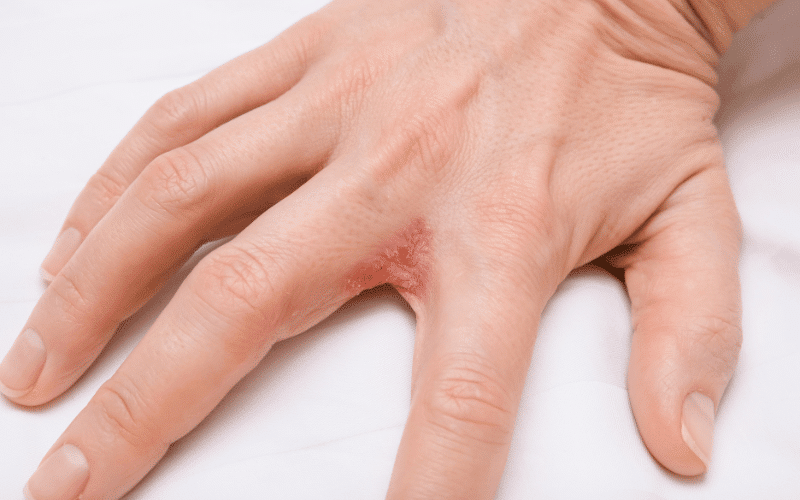Cause 3. Dyshidrotic Eczema: A Vesicular Eruption

Dyshidrotic eczema, also known as pompholyx, presents a different challenge. This type is characterized by small, itchy blisters on the palms of the hands or the soles of the feet. The intense itch can cause significant discomfort, often disrupting daily activities and sleep.
The exact cause of dyshidrotic eczema is not known, but certain factors have been associated with an increased risk. These include a history of atopic dermatitis, high-stress levels, and exposure to certain metals like nickel and cobalt. This type of eczema also seems to be more common during certain seasons, particularly spring and summer.
Although dyshidrotic eczema often resolves on its own within a few weeks, the discomfort it causes can be severe. Cool compresses, moisturizers, and topical steroids can provide relief. In more severe cases, other treatments like ultraviolet light therapy or even oral steroids may be needed.(3)